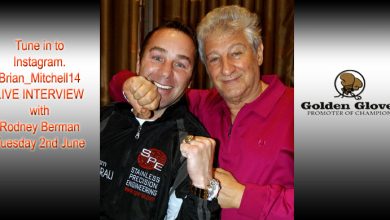Supersport a crucial role player in South African boxing.

Ask any promoter. Putting on a boxing tournament above the development level without television coverage presents a huge challenge.
This is because television rights worldwide constitute the biggest source of revenue. Long gone are the old days of the live gate. People have gotten used to watching sports from the comfort of their homes and with the recent pandemic, it is an open question how many people will feel safe sitting among a big crowd.
With the purses that top boxers command, the gate is simply not enough to cover expenses. Overseas, television networks like HBO (they have since cancelled their boxing programming), Showtime, ESPN and more recently, streaming giant, DAZN, fork out millions for big names to fill their screens.
“The TV rights constitute at least 50% of the revenue,” promoter Rodney Berman explains. Then there are sponsors of course but with no TV, they get minimal exposure for their brands and are unlikely to be interested. The symbiotic marriage between casinos and boxing is a world-wide phenomenon with punters requiring entertainment and in return making use of the accommodation, gambling, and restaurant facilities before and after a fight card. “Without TV it is a vicious downward spiral,” says Berman.
The national broadcaster has historically supported boxing with many earlier fights being shown to a national audience on SABC. Fight cards were a twice weekly feature with boxing being broadcast on Sunday afternoons on the old TV2, mostly from the Orient Theatre in East London that spawned so many world champions, among them legends like Welcome Ncita and Vuyani Bungu. On Monday evenings there were live boxing from other parts on the country as well.
In 1985, the broadcasting landscape changed somewhat with the establishment of South Africa’s first pay channel, M-Net. The super fight between Marvelous Marvin Hagler and Sugar Ray Leonard was the first big overseas event to catch the imagination of the public.
Our top local stars quickly became part of the premium channel’s offering and fans could watch Brian Mitchell defending his world title, Welcome Ncita winning his, as well as the exciting ups-and-downs of charismatic heavyweight star, Johnny du Plooy, to name but a few.
Golden Gloves Promotions were the pay channel’s fistic content provider from the get-go and along with other sporting codes, firmly established the Supersport brand which kept expanding into more channels, eventually morphing into DSTV in 1995, which today broadcasts throughout Sub-Saharan Africa.
Unfortunately, live boxing on the national broadcaster has gradually declined along with the entity’s ever-increasing financial woes until eventually disappearing. Nowadays, tournaments are usually recorded to be showed later, on fight-by-fight basis.
The limited television exposure has influenced the public profile of the fighters as well. Our top boxers today like Moruti Mthalane, Kevin Lerena, Hekkie Budler and Zolani Tete are well known among boxing fans but not so much among the public at large.
Supersport has remained through thick and thin as the mainstay broadcaster of boxing in South Africa and it is an open question what would have happened to the sport in recent years if it were not for the pay channel. Although competition is always a good thing and other platforms will hopefully re-emerge, South African boxing owes Supersport a world of gratitude for keeping the sport alive in difficult times!

